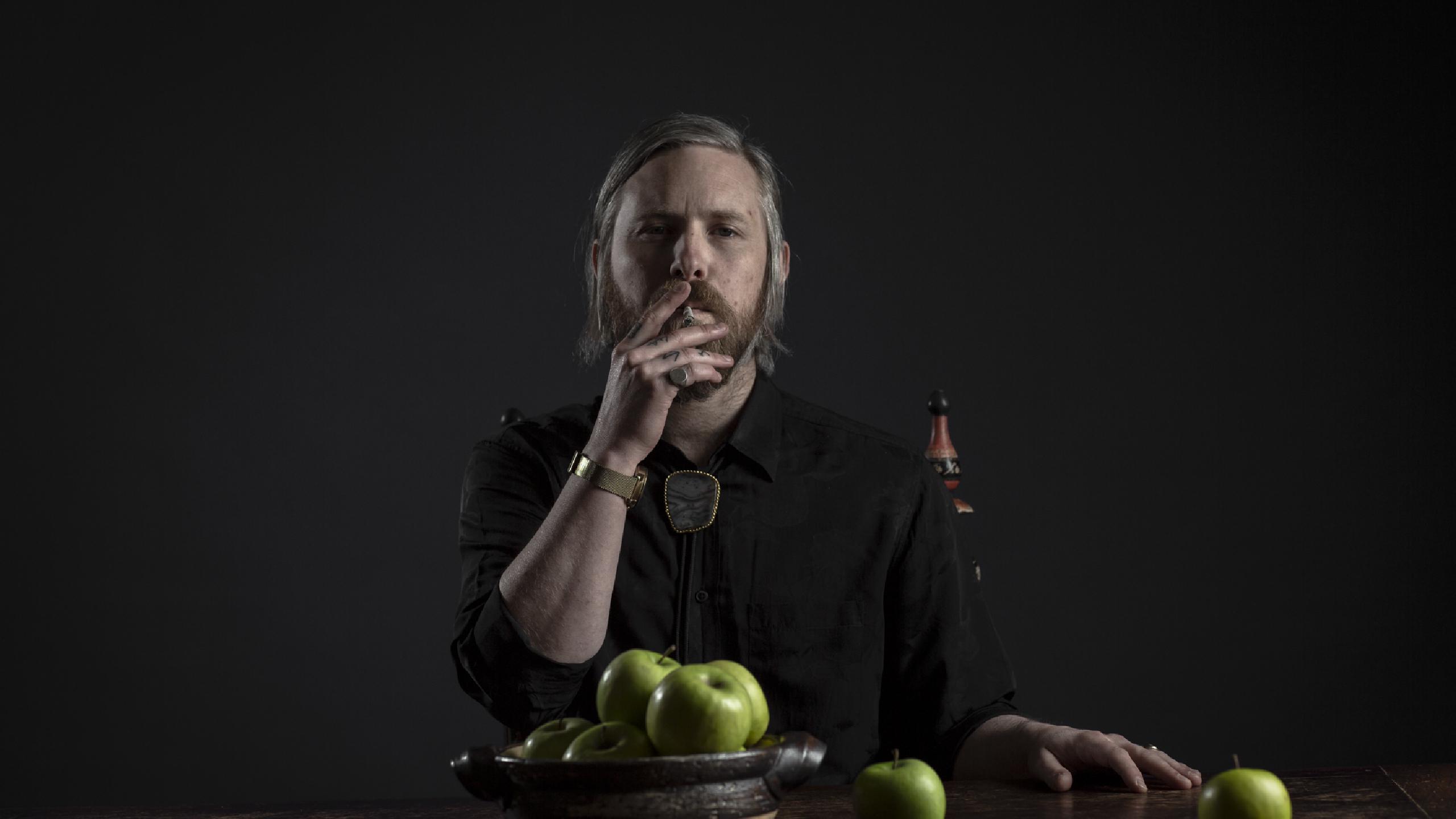In Philadelphia’s Gayborhood, the nightclub Voyeur stays open a full eighty minutes later than the clubs around it. Drag shows are common there, as are weekend nights filled with blaring pop, hip-hop, and EDM. Benjamin John Power thinks fondly of a show he played there with his game-changing electronic duo Fuck Buttons, and while neither that group’s music nor the lengthy adventures in pummeling cacophonies and dissonant loops he records solo as Blanck Mass would suit drag shows, he absolutely loves drag.
“Drag queens aren’t just artists, they’re progressing us as a species,” the professed RuPaul’s Drag Race and Pose fan says, even though the textural, indecipherable black-metal screams that comprise Blanck Mass’ infrequent vocal lines would immediately disqualify his music from use in a drag performance. “It’s very important to question ideas of gender.”
No wonder, then, that Power says his newest BM album, Animated Violence Mild, focuses on drag as its “bright” theme. Two of its track titles reference the art form: “Death Drop” is the ultimate drag queen move, and “House vs. House” reflects on the tradition of two different ballroom houses going head-to-head in judged competition. Both songs gallop through synthetic gyrations and euphoric, sky-bound melodies that are levels less grating than anything heard on previous Blanck Mass releases (instead, these songs, like much of Mild, recall Fuck Buttons’ revolutionary sophomore album Tarot Sport).
Although drag’s joy is pervasive in the album’s myriad optimistic synth fills, Power insists that Animated Violence Mild’s “dark” theme is entirely unrelated to drag. Behind its superficial sugarcoating, Mild grieves what humanity loses to the violence of consumerism. Not that you’d know that without Power saying so—again, Blanck Mass lyrics are all but impossible to decrypt.
“It’s important to let people form their own relationships with these pieces of music,” he says, when asked why he never shares lyric sheets or discusses the exact words he screams. “It would almost be a double standard, once you’ve shared something with the world, to tell somebody how to engage with it. These songs are snapshots of where I was at and what I was thinking about, but that doesn’t mean that has to be how somebody else experiences them.”
Power is happy to state that consumerism falls under that “what I was thinking about” category. As he recorded AVM, he reckoned with how consumerism dulls our ability to engage with the real world—and to him, consumerism includes social media consumption. “It’s a violation,” he says, “to not experience oneness with our surroundings, the world we live in, and the people in our lives.”
“It’s important to let people form their own relationships with these pieces of music. It would almost be a double standard, once you’ve shared something with the world, to tell somebody how to engage with it.”
Of course, consumerism also includes literally buying things, even items that are entirely necessary to our survival. “If you take something from a supermarket shelf,” says Power, “you don’t know the process and who was involved in making it. You don’t even know what’s in this thing. There can be implications that violate human rights. There is a violent underbelly in all these things that we take for granted.” He laments the fact that humans prioritize acquiring goods, even ones as necessary as food, over ethical concerns.
Mild’s strongest statement on the matter isn’t one of its songs—it’s the album artwork, which showcases a hand with nails painted cherry-red, displaying a vivid green apple that’s been bitten into and bleeding. The artwork is brought to life in the video for the album’s third single, the ginormous doom-dance track “Love Is a Parasite.” The video parodies infomercials and turns Animated Violence Mild’s anti-consumerist themes up to eleven (and, for good measure, includes a slightly nefarious drag queen character).
The video, like the artwork, has no shortage of blood, but in neither form is the gore the most striking image: Where a produce sticker might usually appear is a stamp containing Blanck Mass’ pendulum-like logo. It’s almost as though they’re trying to sell us something—but not quite. “Having track titles and album artwork is a necessary evil,” he says—just another way of turning art into a product to be sold.
https://www.youtube.com/watch?v=pmMY35HlTAo
Nevertheless, he admits that “there are some pretty loaded ideas on that artwork.” The painted nails, kitschy logo, and unsettling blood mostly speak for themselves, but Power suggests there’s more to the apple than meets the eye. “Apples have violent connotations historically, religiously, and in folklore and fairytales,” he says. He also credits his wife with teaching him that “apples are somehow connected to the planet Venus, which is interesting, because Venus is connected to the feminine, but also Lucifer, the devil, and ideas of betrayal.”
Even without the apple, Animated Violence Mild offers plenty to chew on. Its songs, despite being long and maximalist, pave such unorthodox paths that every second is equally unforgettable. “Love Is a Parasite,” which Power says was the album’s most technically challenging track to finalize, is a symphony as linear as it is climactic. All manner of synthetic elements squeal, shuffle, and pummel (often in double-time) across six minutes as danceable as they are intimidating, with energizing synth loops building toward a climactic earthquake of signature screaming and classic synths that sound like they’re about to explode and then fizzle. “Hush Money” is the closest Blanck Mass has come to creating straight-up video game music, with high-gloss synths playfully and imposingly shimmying over nimble percussion and digital squeaking.
AVM pairs goblets of brightness with Power’s long-documented love of aggressive, snarling melodies and arrangements. Though the album’s sugarcoating cloaks the grief and pessimism that comprise its cornerstone, and its songs don’t transparently reveal Power’s stated themes, the LP is still being packaged and sold, despite Power’s anti-consumerist bent. In this case, however, the creator’s knowledge of the musician-consumer relationship actually enhances the art’s resonance—so it isn’t such a drag after all. FL









